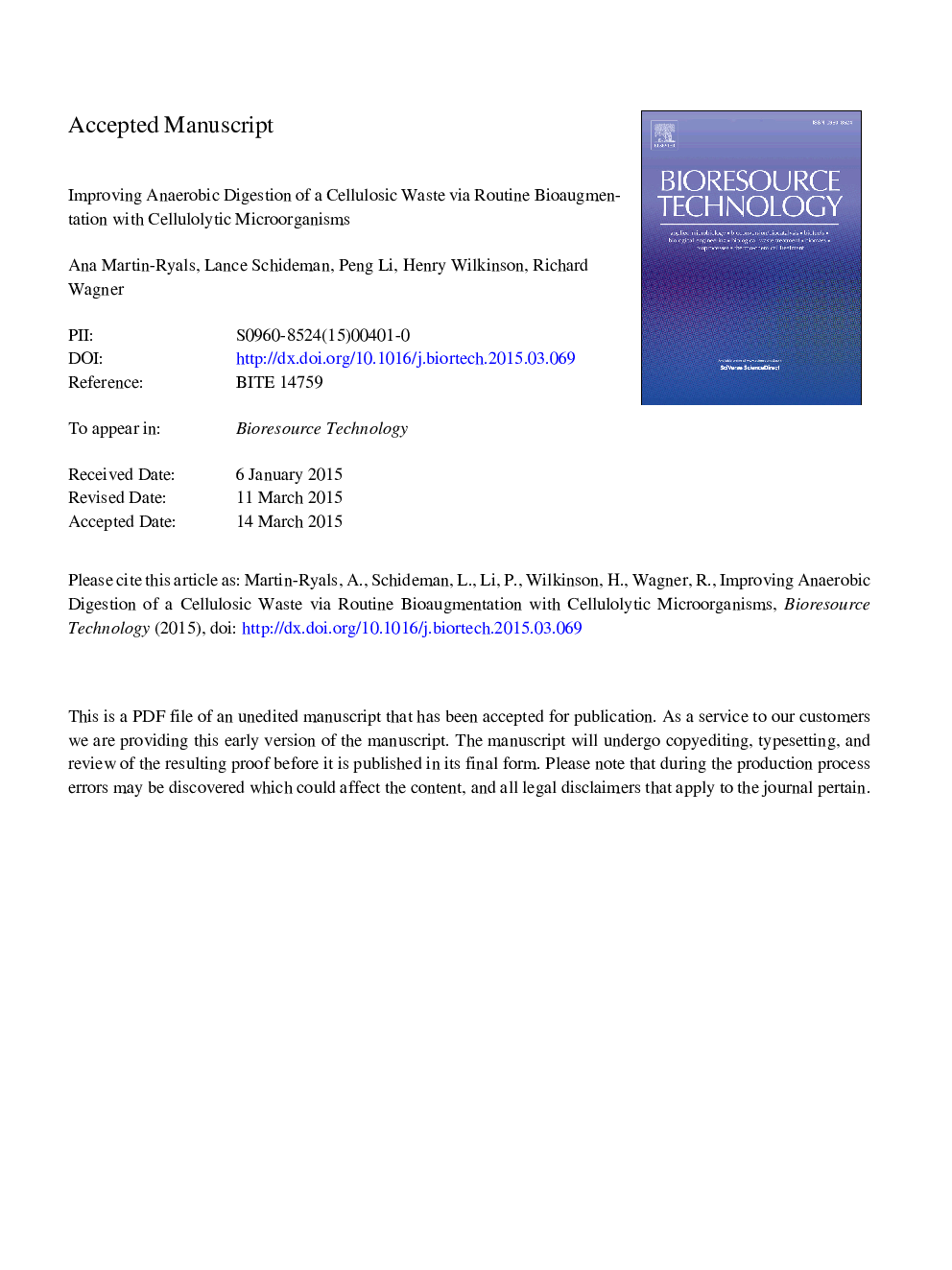| Article ID | Journal | Published Year | Pages | File Type |
|---|---|---|---|---|
| 679739 | Bioresource Technology | 2015 | 36 Pages |
Abstract
This study investigated routine bioaugmentation in the acid-phase of a two-phase anaerobic digestion (AD) process treating a largely cellulosic waste material generated from sweet corn processing. A proprietary cellulolytic bioculture was used for bioaugmentation with the aim of increasing substrate hydrolysis to improve overall methanogenic efficiency. In a sequencing batch experiment routine bioaugmentation achieved significantly greater soluble chemical oxygen demand (sCOD) generation (+25%) and methane production (+15%) compared to one-time bioaugmentation. In a continuous bench-scale system, routine bioaugmentation increased acid-phase sCOD by 29-68% and acetic acid concentrations by 31-34%. This benefit to hydrolysis and acetogenesis subsequently led to sustained increase in methane production (+56%) compared to non-bioaugmentation. A cursory economic analysis indicated that routine bioaugmentation could improve the economics of corn waste AD by $27-$34/dry tonne of waste. Overall, routine bioaugmentation showed significant promise for improving AD of corn waste by achieving sustained increases in substrate hydrolysis and methane production.
Related Topics
Physical Sciences and Engineering
Chemical Engineering
Process Chemistry and Technology
Authors
Ana Martin-Ryals, Lance Schideman, Peng Li, Henry Wilkinson, Richard Wagner,
